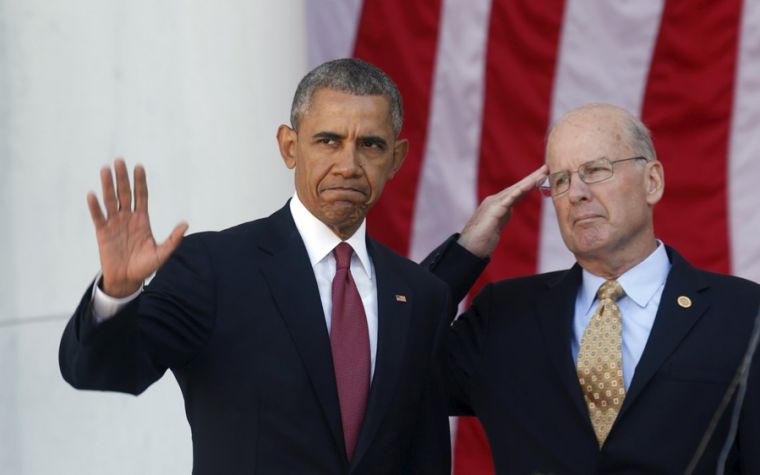US military leaders' growing discontent of President Obama's 'indecisive' leadership disclosed

US President Barack Obama's cautious approach to the wars in Syria and Iraq and an indecisive inner circle of White House advisers who reportedly have iced the Pentagon out of the policy-making process are reportedly among the factors responsible for the growing level of discontent arising in the US military.
Prominent lawmakers from both sides of the political aisle openly divulged military frustrations with the Obama administration in interviews with the Washington Times this week.
"There's a level of dissatisfaction among the uniformed military that I've never seen in my time here," said Senate Armed Services Committee Chairman John McCain, according to Fox News.
"For some of us who are a little older, let's go back and read the Pentagon Papers — what the administration is doing is the kind of incrementalism that defined much of the Vietnam conflict,'' he added.
His sentiments were also echoed by an unlikely source, Rep. Adam Smith, the ranking Democrat in the House Armed Services Committee. "Frustration among the uniformed service is real. [The administration] does keep things in the White House and has not been more inclusive in the decision-making process."
But the Washington Democrat also defended the administration's overall approach to the troubled Middle East, arguing that the "sheer complexity of the situation" following the Arab Spring and the rise of the Islamic State (ISIS) have defied a simple U.S. solution.
According to McCain, the frustration at Capitol Hill and at the Pentagon stems from the administration's "complete lack of any kind of coherent strategy, much less a strategy that would have any success on the battlefield" against ISIS and the regime of Syrian President Bashar al-Assad.
"We're sending 50 — count them, 50 — special operations soldiers to Syria, and they will have 'no combat role,' the president says," said Mr. McCain. "Well, what are they being sent there for? To be recreation officers? You're in a combat zone, and to say they're not in combat is absurd."
The White House, he noted, has effectively blinded itself to such absurdities by promoting a system over the past seven years that suppresses dissenting voices. "Compliant and easily led military leaders get promoted while those who have spoken truth to power get retired."
He cited the cases of Marine Gen. James Mattis, reportedly dismissed as head of U.S. Central Command in 2013 for pressuring civilian officials in the White House on potential military options against Iran; and Army Lt. Gen. Michael T. Flynn, allegedly pushed out as head of the Defense Intelligence Agency last year amid clashes with the White House over his leadership style.
The Arizona Republican, who is also one of Obama's fierce critics on foreign policy, lamented that the actual policy the White House pursues are half-measures and decisions that "when they are made, consistently disregard recommendations from the uniformed military."
The U.S. failure to break ISIS' hold on Syria and Iraq, and its spread into North Africa, McCain said, have also resulted in "very poisoned relations that now exist between many in both houses of Congress and the president.''
"There's a total lack of confidence in the president's leadership," he said.
Polls also suggest that American voters are increasingly wary of the administration's response to the wars in Syria, Iraq and Libya, which have killed more than a quarter-million people and spawned a vast refugee crisis stretching into Europe during recent years, Fox News said.











